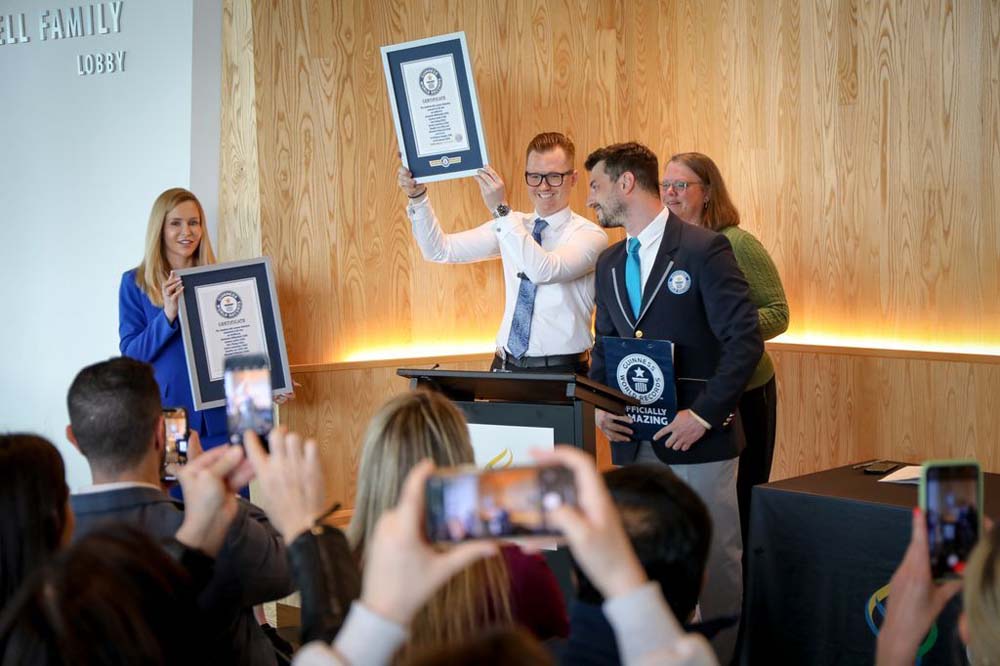OHSU Team Breaks World Record with Smallest Skin Cancer Detection
Published 6:20 pm Wednesday, May 3, 2023

- Guinness World Records judge Andrew Glass presents certification to Joanna Ludzik, M.D., Ph.D., and Alexander Witkowski, M.D., Ph.D., as Christy Staats looks on.
A team of dermatologists at Oregon Health and Science University have made medical history by discovering the smallest known case of skin cancer. On Monday, May 1, representatives from the Guinness World Records recognized the team for their work and honored them for the discovery of the “Smallest Detected Skin Cancer.”
Trending
It began when Christy Staats discovered a small red spot on her face. Throughout several years, she consulted several dermatologists about it. Each time she was told it was harmless.
However, during the pandemic, she became more worried about it after it seemed to get bigger.
“I have a magnifying mirror in my bathroom and noticed the spot I was worried about was way bigger and had a ‘leg’ on it. I set up an appointment to get it looked at,” Staats said.
Trending
She went to see Dr. Alexander Witkowski, assistant professor of dermatology at OHSU School of Medicine. At their appointment he used two methods of non-invasive testing and found an additional tiny spot on her right cheek that might have otherwise gone unnoticed.
“I took a picture of the spot with the Sklip smartphone attachment, then performed additional imaging with reflectance confocal microscopy which showed atypical cells concerning for melanoma,” he says. “I told Christy right there at the bedside, ‘I think this could be the smallest skin cancer ever detected.’”
That’s when Witkowski consulted his colleagues, Dr. Joanna Ludzik, Dr. Jina Chung, Dr. Sancy Leachman and Claudia Lee to help confirm the diagnosis.
According to Witkowski, OHSU is one of the few centers in the country that has an in vivo confocal device, which he says ultimately led to the detection of the melanoma on Staats’ face. The team says it was only 0.65 millimeters in diameter and almost undetectable to the human eye.
According to OHSU, this form of early detection is particularly important because melanoma is potentially deadly and can spread to other parts of the body if it is not treated early. They emphasize the importance of regular skin checks and staying vigilant when it comes to skin health.
Staats says she is grateful that her melanoma was caught before it could grow or spread. She believes that with the right technology, it is possible to catch skin cancer early and save lives. “It’s an important reminder that you can’t get lazy with your skin. You have to stay on top of it and get new things checked out.”
The American Cancer Society estimates about 97,610 new cases of melanoma will be diagnosed in the United States in 2023.







